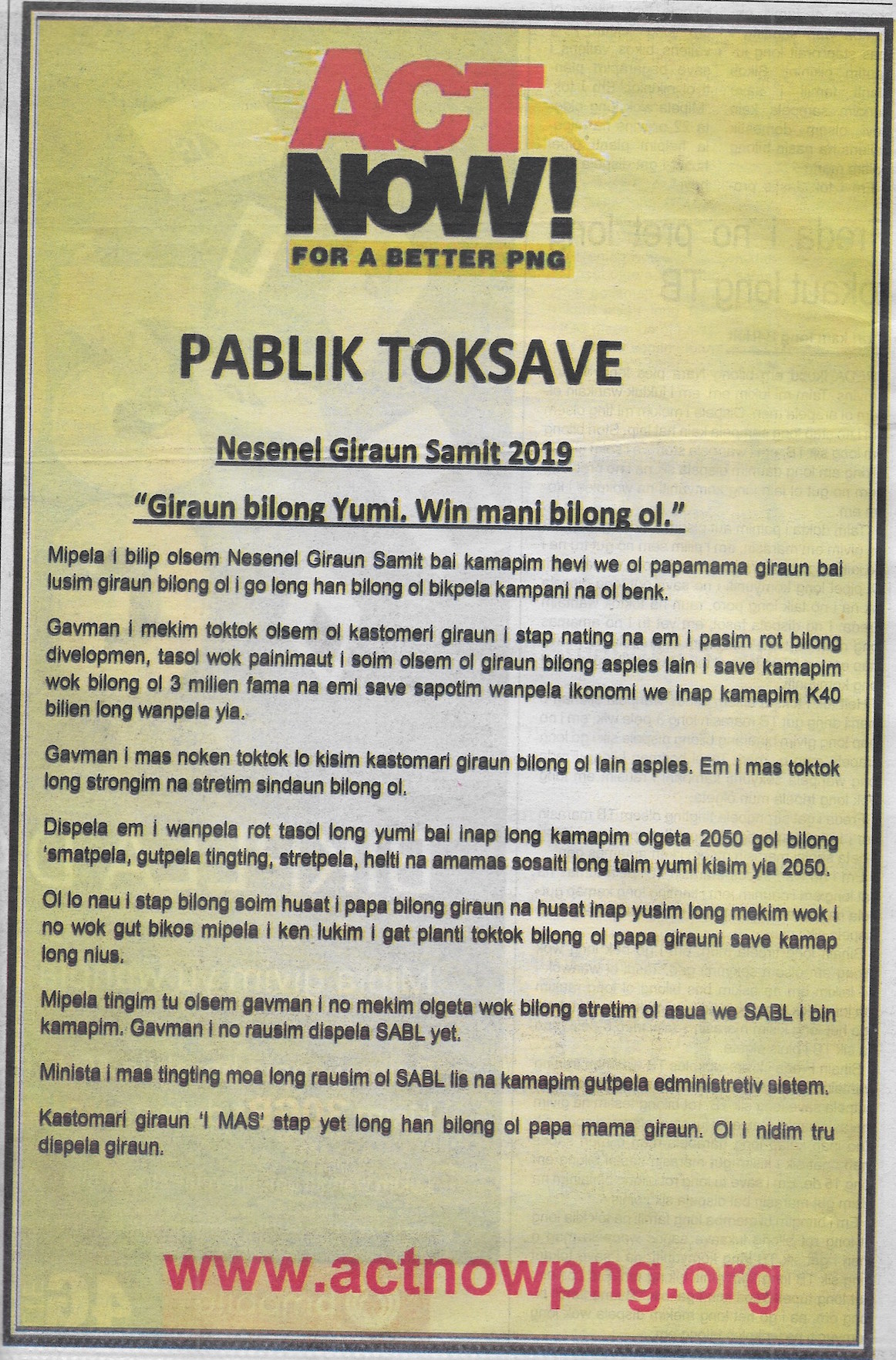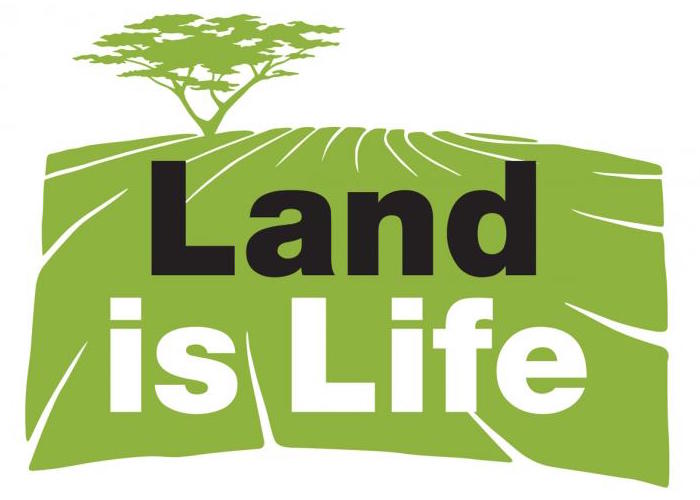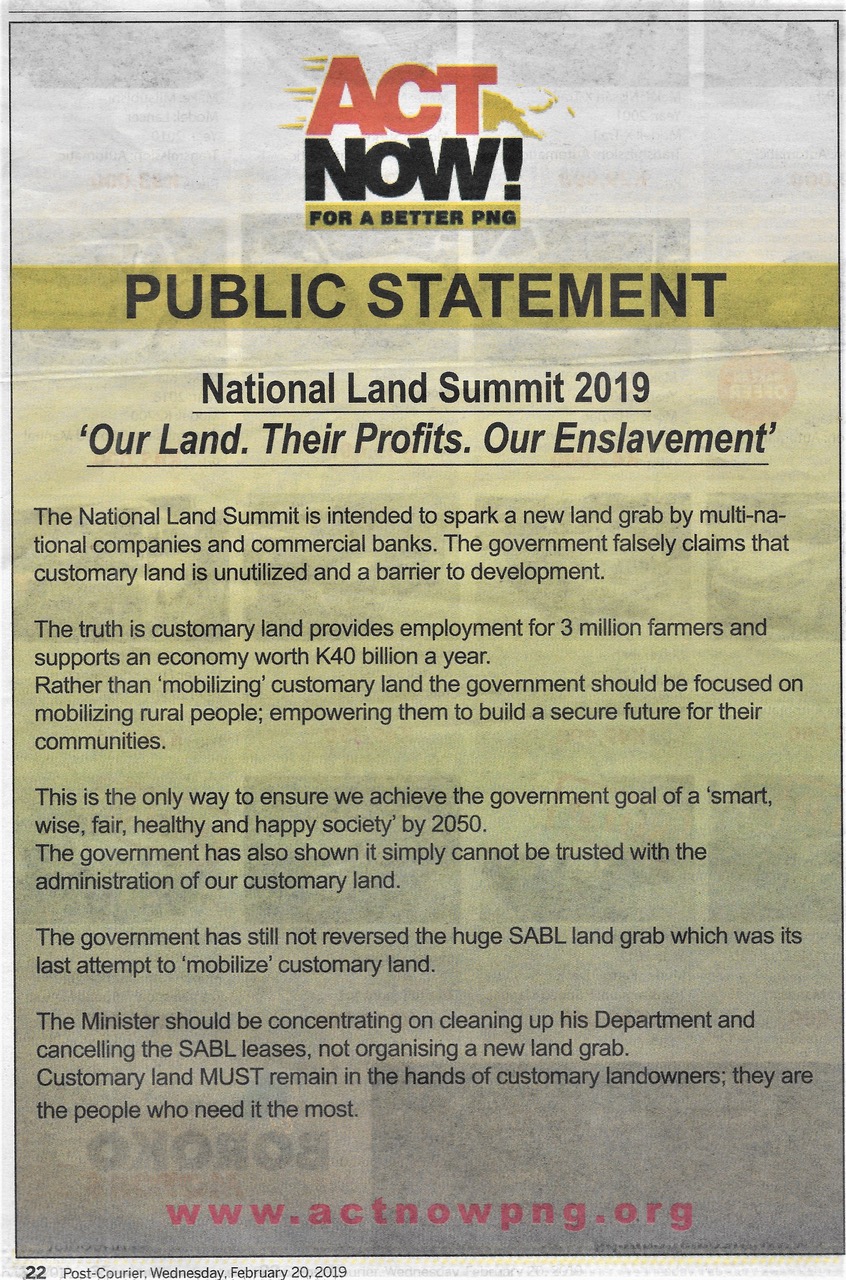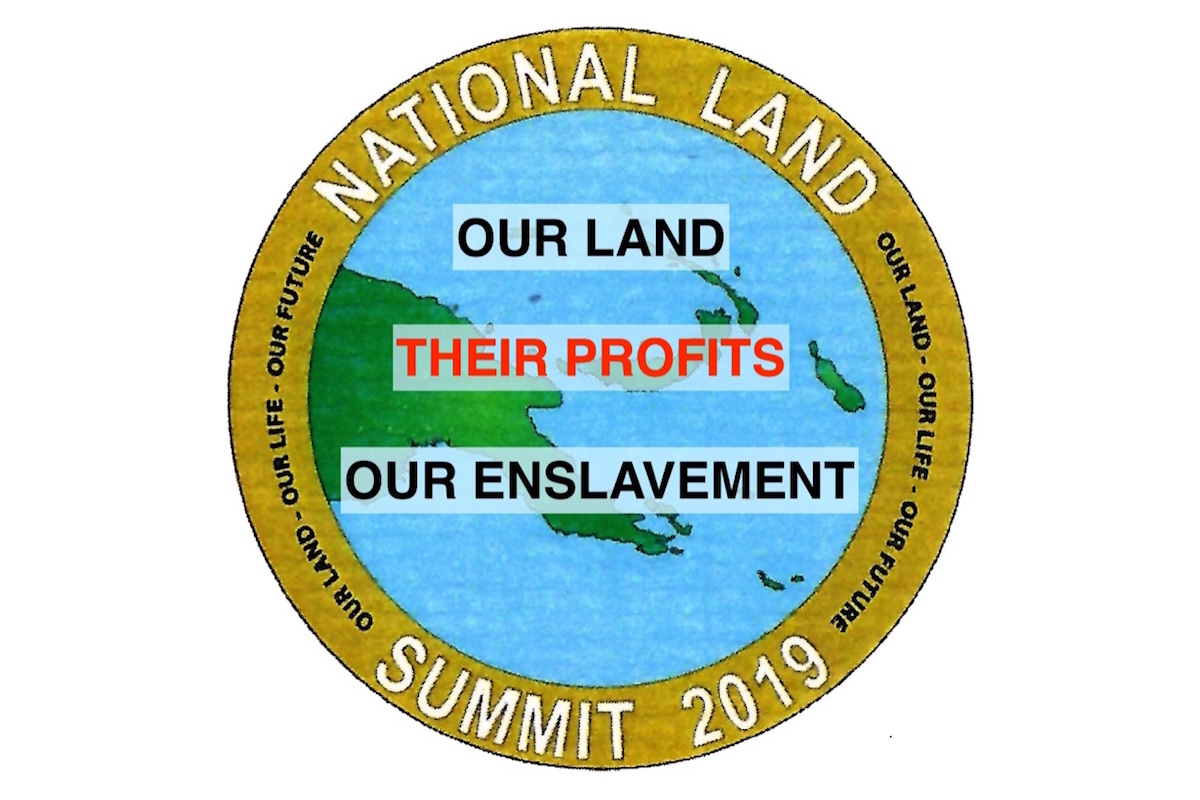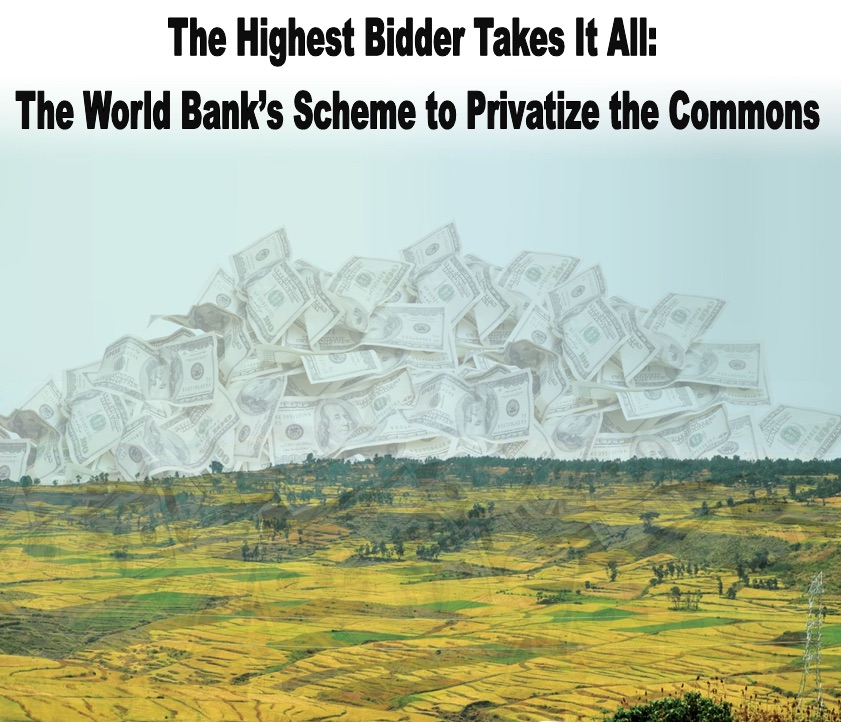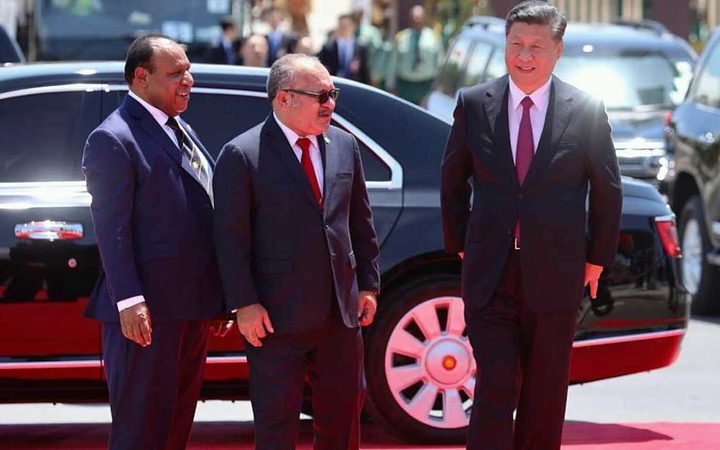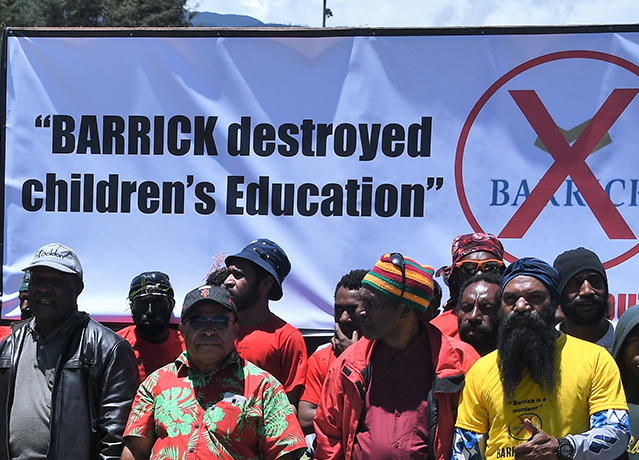A short video warning customary landowners about the government’s intention to use the National Land Summit to spark a new land grab has been viewed more than 13,000 times in less than a fortnight.
Produced by ACT NOW!, the video explains how the Land Summit will lead to commercial banks and foreign companies being given more access to customary land. This is in response to the government being forced to stop the issuing of new SABL leases.

